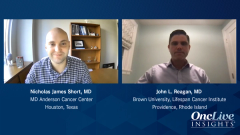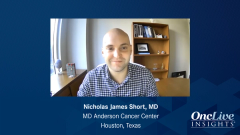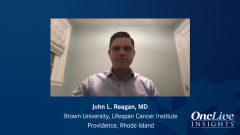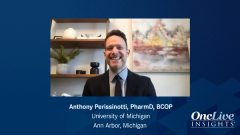
TLS Management in Academic vs Community Centers of Care
A brief review of the differences that might be observed between tumor lysis syndrome management in an academic versus community setting.
Episodes in this series

Transcript:
Nicholas James Short, MD: I practice in an academic center, and so do you. Do you want to talk about how these protocols might differ between community and academic centers? Is it important to have institutional guidelines to guide our decisions in terms of who gets for rasburicase and who doesn’t, for example, or anything else involving tumor lysis syndrome diagnosis and management?
John L. Reagan, MD: Fortunately, it’s not a very common occurrence, but it’s 1 of those things that if you don’t see it a lot, then you don’t necessarily have expertise in dealing with it. That’s probably the biggest [difference] you’d see between a community and academic medical center. If you don’t see things a lot, you might not deal with it as much. Based on the patients’ acuity, it’s important to think about this in a community center, given that we do have other treatments. You mentioned CLL [chronic lymphocytic leukemia] before. We initiate venetoclax with CLL, and you can induce tumor lysis because there’s a lot of tumor in the body, but venetoclax is so active in CLL. As we move along, you always get surprises like this. When you find 1 of these extremely effective treatments for any cancer, you have to be prepared for it.
They’ve looked at this a little bit. There was [an article in Blood] in 2019 by Dr [Scott] Howard, looking at the incidence of tumor lysis syndrome in community centers. There aren’t a tremendous amount of data out there about community vs academic centers. That’s why [we should] have some pathway in place. Where are we going to [use this]? What are the guidelines for this? Who are we going to give rasburicase to? That goes back to those basic guidelines of knowing who’s at low risk for tumor lysis. [Those patients have] low tumor burden, solid tumors—most of the time, but it depends on what that treatment is because treatment efficacy for any type of cancer falls into that realm also. For B-ALLs [B-cell acute lymphoblastic leukemias] or non-Hodgkin lymphomas that are intermittent between diffuse large cell and Burkitt lymphoma, that’s where those lie.
The LDH [lactate dehydrogenase] is so useful in terms of figuring out which patients are higher risk for tumor lysis and figuring out which patients are going to need that additional prophylaxis. Looking at other things, like elevated white blood cell count, [elevated] potassium levels, or if phosphate is starting to creep up—that’s when I ask if I’m really going to use uric acid to keep the kidneys in check. When do you bring in our renal colleagues?
That’s 1 of those issues: if you’re seeing things a lot, you want to have firm protocols in place because they can happen at any place, anytime. With Epic [software], it’s a little easier in terms of sharing different protocols. You can put those in and have them ready to go. That’s the thing we should think about. If you’re in the community seeing different types of patients, it can happen with any patient at any time. We say a lot of times—not with solid-tumor patients but with small cell lung cancer—that it can happen.
You can see these patients coming in, and [there is] that oncologic emergency and need for immediate treatment. We want to make sure the patients understands. That initial recognition and assessment—who’s that patient whom I need to think about this for and probably even admit to the hospital when they’re high tumor burden. That’s where these different pathways can help us out and help lead to understanding of what’s going on with these patients.
Transcript edited for clarity.








































